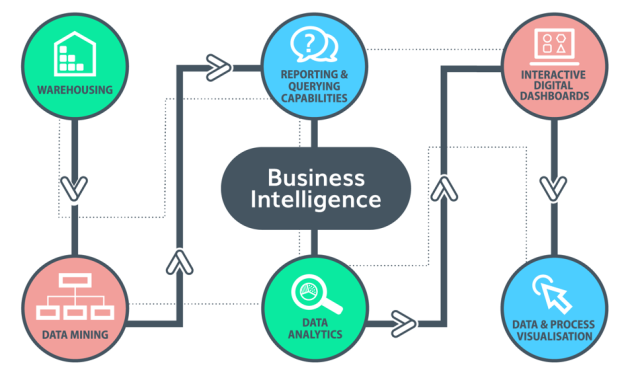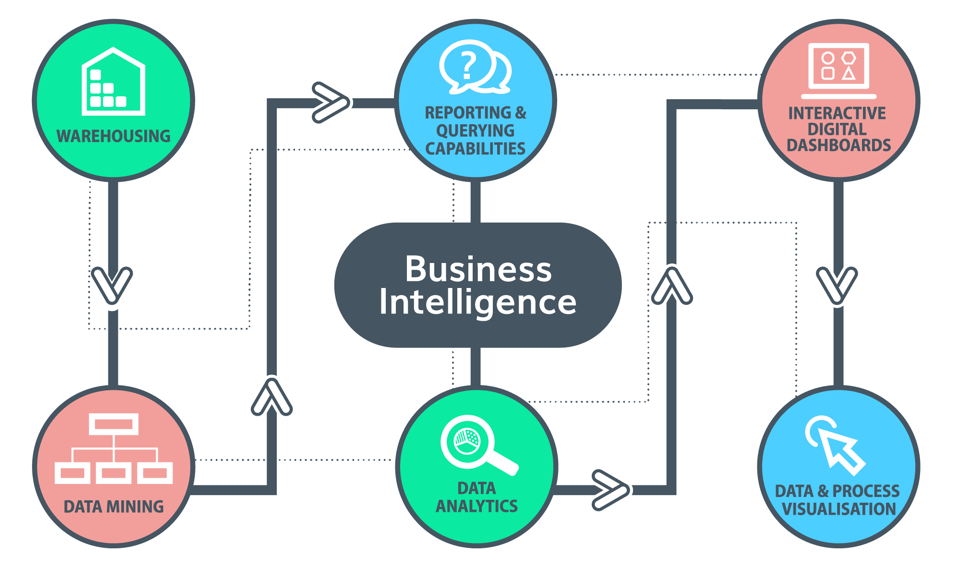
Business Intelligence Tools to Transform Your Data: A Comprehensive Guide
In today’s data-driven world, businesses are drowning in information. However, raw data is useless without the right tools to make sense of it. This is where business intelligence (BI) tools come into play. They are essential for transforming raw data into actionable insights. This guide will explore the landscape of business intelligence tools, helping you understand their value and how to choose the right ones for your needs. The core of this article is to explain how business intelligence tools can help transform your data.
The ability to analyze data effectively is no longer a luxury. It is a necessity for survival and growth. Business intelligence tools empower businesses to make data-driven decisions. They provide a clear picture of performance, identify trends, and uncover opportunities. This allows businesses to optimize their operations, improve customer experiences, and gain a competitive edge. The effective use of business intelligence tools is a key differentiator in the modern business environment.
Understanding Business Intelligence and Its Importance
Business intelligence is the process of collecting, analyzing, and interpreting data to gain insights. It involves using various tools and techniques to understand past performance, current trends, and predict future outcomes. The ultimate goal of BI is to provide decision-makers with the information they need to make informed choices.
The importance of BI stems from its ability to:
- Improve Decision-Making: BI tools provide data-backed insights. This leads to more informed decisions.
- Enhance Efficiency: By identifying areas for improvement, BI tools can streamline operations.
- Increase Profitability: Data-driven insights can help businesses optimize their pricing strategies. They can also identify new revenue streams.
- Gain a Competitive Advantage: BI tools allow businesses to understand their customers and markets better. This facilitates better strategies.
Key Features of Effective Business Intelligence Tools
Not all business intelligence tools are created equal. Effective tools share several key features that contribute to their success:
- Data Integration: The ability to connect to various data sources is crucial. This includes databases, spreadsheets, and cloud services.
- Data Visualization: Clear and concise data visualization is essential for understanding complex data. This includes charts, graphs, and dashboards.
- Reporting and Analytics: Robust reporting and analytical capabilities are needed. These are for identifying trends and patterns.
- User-Friendliness: Intuitive interfaces and ease of use are important. This empowers users to analyze data without extensive technical skills.
- Scalability: The ability to handle growing data volumes is critical. This ensures that the tool can adapt to future needs.
- Security: Data security is paramount. Tools must have strong security features to protect sensitive information.
Top Business Intelligence Tools to Consider
The market offers a wide variety of business intelligence tools. The best choice depends on the specific needs and budget of the business. Here are some of the top contenders:
Tableau
Tableau is a leading BI tool known for its powerful data visualization capabilities. It offers an intuitive drag-and-drop interface. This makes it easy to create interactive dashboards and reports. Tableau is suitable for businesses of all sizes. It provides a wide range of data connectors and analytical features. It is a great tool that can effectively transform your data.
Microsoft Power BI
Microsoft Power BI is a popular and affordable BI tool. It integrates seamlessly with other Microsoft products. This makes it a good choice for businesses already using the Microsoft ecosystem. Power BI offers a wide range of features, including data modeling, data visualization, and collaboration tools. It is designed to transform your data into actionable insights.
Qlik Sense
Qlik Sense is another powerful BI tool. It is known for its associative data model. This allows users to explore data from multiple angles. Qlik Sense offers a user-friendly interface and a wide range of analytical capabilities. It is suitable for businesses looking for advanced data discovery and analysis. Using Qlik Sense can transform your data to present a new perspective.
Looker (Google Cloud)
Looker, now part of Google Cloud, is a modern BI platform. It is designed for data-driven organizations. It offers a flexible and scalable architecture. Looker provides advanced data modeling capabilities and supports a wide range of data sources. It’s designed to transform your data into meaningful insights.
Sisense
Sisense is a BI platform that focuses on ease of use and speed. It offers a simplified data preparation process. Sisense allows users to quickly build and deploy dashboards. It is suitable for businesses that need to analyze large datasets. It is a great tool to help you transform your data.
Choosing the Right Business Intelligence Tools
Selecting the right business intelligence tools requires careful consideration. Here are some factors to keep in mind:
- Business Needs: Identify the specific data analysis needs of the business.
- Data Sources: Determine the data sources that need to be integrated.
- Budget: Set a realistic budget for the tools and implementation.
- Technical Skills: Assess the technical skills of the team.
- Scalability: Consider the future data growth needs of the business.
- User Experience: Prioritize user-friendly tools with intuitive interfaces.
By carefully evaluating these factors, businesses can choose the business intelligence tools that best fit their requirements. This will help them transform their data into valuable insights. With the right tools, businesses can gain a competitive advantage. They can also make better decisions and improve their overall performance. Effective use of business intelligence tools can truly transform your data.
Implementation and Best Practices
Implementing business intelligence tools successfully involves more than just selecting the right software. It requires a well-defined strategy and adherence to best practices:
- Define Goals: Clearly define the goals and objectives of the BI initiative.
- Data Preparation: Invest in data quality and cleansing.
- User Training: Provide adequate training to users.
- Data Governance: Establish data governance policies to ensure data accuracy.
- Iterative Approach: Adopt an iterative approach to implementation.
- Regular Monitoring: Continuously monitor and evaluate the effectiveness of the tools.
The Future of Business Intelligence
The field of business intelligence is constantly evolving. Several trends are shaping its future:
- Artificial Intelligence (AI): AI and machine learning are being integrated into BI tools. This is for automated insights and predictive analytics.
- Cloud-Based BI: Cloud-based BI platforms are becoming increasingly popular. They offer scalability and accessibility.
- Self-Service BI: Self-service BI tools are empowering business users. They allow them to analyze data independently.
- Data Democratization: The trend is towards making data accessible to everyone. This allows for better decision-making.
As these trends continue to develop, business intelligence tools will become even more powerful. They will also be more accessible. This will enable businesses to unlock even greater value from their data. The future of business intelligence is bright, and the ability to effectively transform your data will be more crucial than ever.
Conclusion: The Power of Business Intelligence Tools
Business intelligence tools are essential for businesses looking to thrive in the data age. By providing powerful data analysis and visualization capabilities, these tools empower businesses to make smarter decisions. They also improve their operational efficiency. Selecting the right tools, implementing them effectively, and staying abreast of industry trends are key. Businesses can unlock the full potential of their data and gain a significant competitive advantage. They can transform their data into a strategic asset. This will lead to better business outcomes.
[See also: Data Visualization Best Practices, The Role of Data in Decision-Making, How to Choose the Right BI Software]

